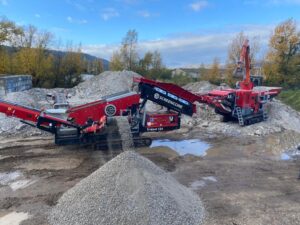Looking beyond the economic squeeze in which South Africa’s construction sector finds itself, there is still a need to inspire young people to join the industry. AfriSam’s Avi Bhoora highlights the strategic importance of the construction supply chain, which offers exciting careers for those with vision and a strong work ethic.
Having spent a very busy 40-year career in the construction business, Bhoora is concerned by the negative attitude of many young people towards this field of work.
“I do worry about the number of young South Africans who seem to have taken a conscious decision not to enter an industry like ours,” says Bhoora. “There appears to be a strong preference for an ‘office job’ rather than the often difficult conditions of working on a construction site, for instance.”
Such attitudes make it difficult for companies like AfriSam to compete for the best talent among school leavers or college graduates, he says. It is therefore vital for the industry to change this view among potential new entrants, and to highlight the potential for meaningful and rewarding careers.
“It might not be obvious to many people how vital our work is to every citizen’s quality of life,” he says. “If we could better convey the importance of what we do, it could inspire more youth to consider the opportunities and get involved.”
This might need a concerted rebranding of the industry’s image, to emphasise the many avenues that are open to new entrants. His concern is that construction related careers have become a ‘blind spot’ to many young people, blocking any possibility of exploring these options.
“I have spent my whole life in construction, and as I approach retirement, I am inclined to reflect on how the sector is going to renew itself – so that it can continue delivering into the future,” he says.
An important starting point is for the public to appreciate more clearly that every city, road, bridge, dam, school, hospital or other engineered structure comes from the work of skilled contractors and their supply chain.
“Materials like aggregate must be extracted from the earth to make the concrete for this infrastructure; it is difficult work, but essential for progress,” says Bhoora. “If the youth can be inspired by these messages, perhaps we can start changing the value they place on the occupations this field offers.”






